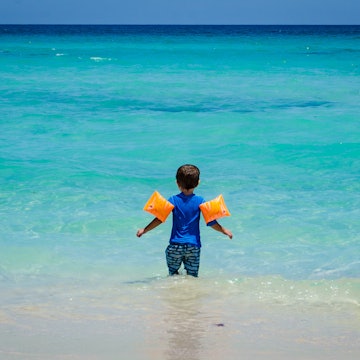

If you find yourself anxious on a flight, pinpoint when it is escalating, take deep breaths and try to visualize past the fear © Extreme Photographer / Getty Images
In this series, Lonely Planet’s team of writers and editors answers your travel problems and provides tips and hacks to help you plan a hassle-free trip. This week, our colleague Dr Jenny Yu – head of medical affairs at our sister site Healthline and a travel-health expert – explains that if you’ve recently been feeling anxious when flying, you’re not alone.
Question: Before the pandemic, I never got anxious about flying. But these days, I spend the whole flight worrying about everything that can go wrong and am extremely unnerved by turbulence. Why this new fear? And what can I do about it?
Dr Jenny Yu: First, this is a normal feeling and response as we come out of the pandemic. Scientific research has shown that wars, terrorist attacks and pandemics very understandably cause concern, anxiety, panic and fear of risk in travelers. Our emotions and/or experiences from any traumatic event form memories that can potentially lead to the development of new fears. The visuals, stories and/or personal experiences of the pandemic days certainly have left a mark in our minds. Our day-to-day inputs matter – whether we’re reading news stories about calamities, having unpleasant experiences or scrolling through headlines, we process the information, and ultimately our response. Imagine a child that is exposed only to sugary foods: their taste buds and preferences change due to that exposure.
Second, we are creatures of habit. During the pandemic, many avoided travel completely for two years. If you have not traveled since before the pandemic, the combination of returning to travel after all we’ve been through and being out of practice with flying can create new fears. I recall my first trip through the airport after the pandemic, when I felt all of the unease of being among people, and being away from home having “sheltered in place” both physically and mentally for so long.

How do we overcome this unease – or in your case, this new fear? There are many ways to manage the fear and the stress (which usually go hand in hand). Meditation, positive thinking and other coping methods can help reduce the stress around the fear. Some practical advice for when nerves are frayed inflight: pinpoint when it is escalating, take deep breaths and visualize past the fear (in this case, imagine the destination that you’ll soon reach). As the psychologist Noam Shpancer has famously said: the only way out is through. An effective method to get rid of fear is to repeatedly force yourself to face that fear. This repeated exposure lowers our fear response, making it more manageable. In your case, you may find that repeated exposure to flying and traveling will help reduce your worry and anxiety.
Yet if the fear and the stress of it are too paralyzing, please consult a professional and make sure that there aren’t any other contributing factors. As mentioned earlier, stress and fear go hand in hand. Talking through the causes of any stress that could be creating this new fear might be a good solution as well. Don’t try to work it through alone if this persists and none of the explanations help you.
If you have a burning travel question you would like Lonely Planet to answer, please contact us here. We will select one question and publish the answer each week.














